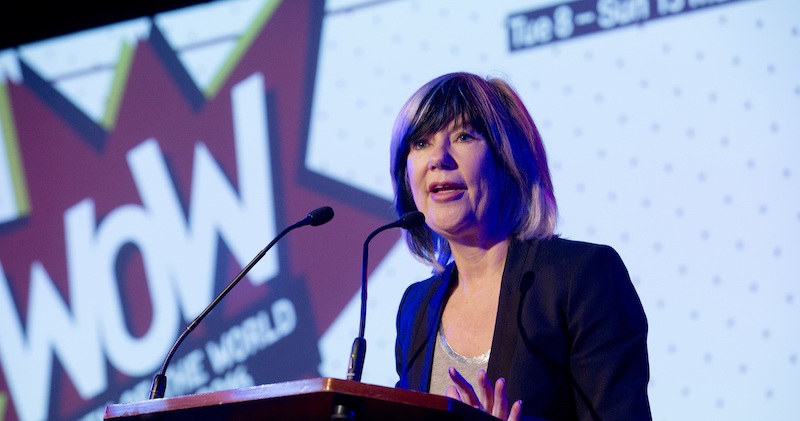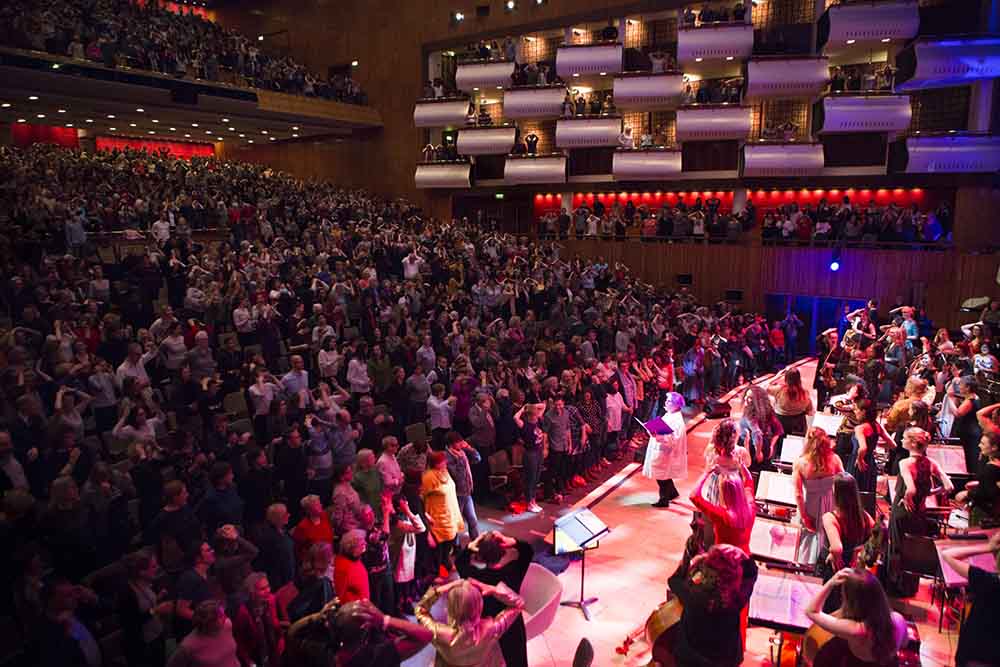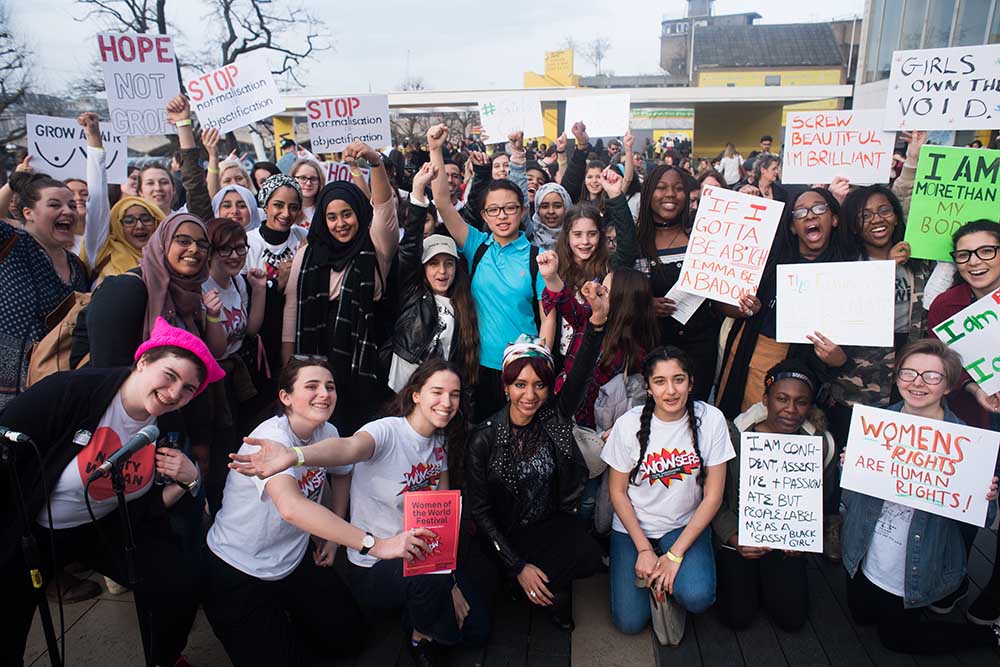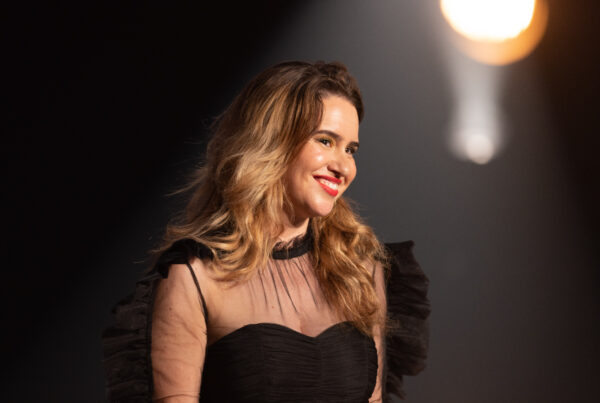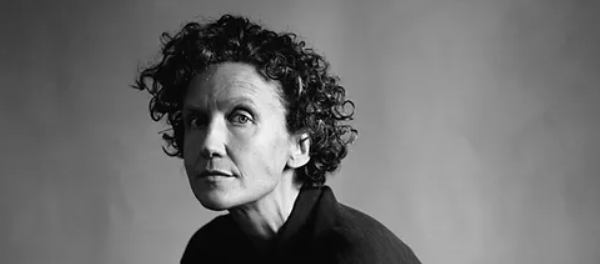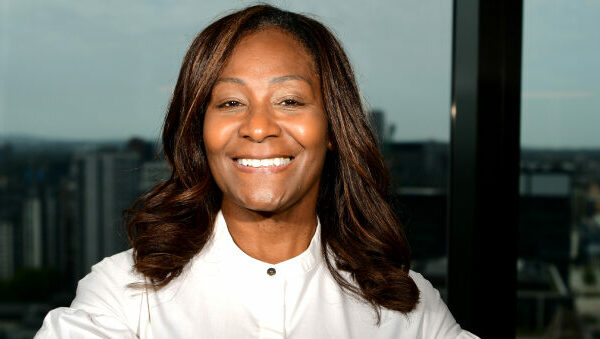Jude Kelly’s Women of the World Foundation is the biggest gathering focused on empowering women and girls. In a Darling exclusive, she shares her experiences with standing up for equality, educating on social issues, and combatting the impact Covid-19 has had on women’s rights.
Women of the World festival was started by Jude Kelly OBE in 2010 when she was Artistic Director of the Southbank Centre. A decade on and WOW Festivals and events now take place in more than 30 locations around the globe, on six continents. Each festival celebrates women and girls, and takes a frank look at the issues they face. Two years ago, Jude left the Southbank Centre to run WOW as an independent charity.
The Wow Foundation, its recent online global festival, WOW Global 24 – the biggest gathering focused on women and girls around the world – and it’s new podcast series, The WOW Podcast with Jude Kelly, the global movement is growing more than ever. Next up is a celebration to mark International Day of the Girl in October. Find out more about WOW from Jude Kelly OBE herself.

What drove you to set up the Women of the World Festival?
I felt compelled to create WOW ten years ago, because so many young women had been persuaded that there was no need to keep fighting for gender equality as we had ‘so nearly got there’ in developed countries. The reality is that across the world there is the ancient and historic idea that women are second class to men and it’s naive to assume that it could be eradicated quickly. WOW, however, was also started to remind us that we have much to celebrate. For instance, my life is completely different from
that of my grandmother.
However, I’m still aware that my daughter and my granddaughter are in a world without equal pay, proper childcare and freedom from sexual harassment. Women and girls have achieved a phenomenal amount and changes are constantly progressing, but it’s slow and can loop back very quickly. Bringing together women of all classes, backgrounds, and life experiences, allows us to fight for things in a way that includes everybody’s needs, not just those with certain levels of power.
Do you see WOW as having a big role in areas of the world where women and girls are facing the most oppression? Can WOW influence decision-makers at the highest levels?
WOW is global and its ability to operate in Finland, as well as Somaliland, demonstrates the need to link our stories. In authoritarian regimes there might be extreme levels of suppression of women’s creativity, conduct and expression, but in other countries there can be all sorts of pressures on women to conform to impossibly high standards of perfection. Therefore, unless we operate as a global conversation, understanding how inequality shows itself differently in different societies, we don’t achieve a systemic picture and without that we’re unable to tackle the issues at their roots.
You’ve raised concerns about how the COVID-19 pandemic is putting the progress women have made back by years, even decades. Is childcare that’s affordable for everyone the answer or one of the answers?
The biggest issue that COVID has revealed is the expectation we put on women with regards to domestic responsibilities and the assumption that these responsibilities do not warrant payment. Homeschooling quickly made it clear that in many households women would still need to take responsibility for childcare and the domestic space, despite often trying to maintain a full-time job. Of course, some men have been shocked to realise the scale of the workload, however the attitude of many partners is that they will lend a hand but that the responsibility is not theirs. Domestic work is perceived as invisible labour and directly relates to the value we give care in general.
Professional care workers, who tend to be almost entirely women, are on very poor wages and given very little status. This needs to change. If domestic labour was properly valued and paid men would approach it differently. The COVID crisis is already taking women back in a way that we should be very nervous about. We’ve worked so hard for the progress we’ve got and it can be taken away very quickly.
Has the WOW movement influenced any legislation in the UK, or elsewhere, that has made a real change to women’s lives?
Over the past ten years WOW has definitely had an impact on legislation in the UK and in other places around the world too. For example, the women in the UK who fought so strongly against FGM directly cite WOW as one of the places that has helped change the conversation, bring about new laws against the practice and help build budgets where there were none.
The formation of the Women’s Equality Party also came directly out of WOW. In all countries where the festival has taken place there is an acknowledgement that the strength of WOW is its ability to speak on all subjects to a wide variety of women, girls and men, and that politicians and policymakers know that what is raised at WOW needs to be given serious consideration.
As an activist for women’s rights and equality you’ve also organised Being a Man (BAM) Festival in 2014 that addressed the challenges and pressures of masculine identity in the 21st century. Do we still need a separate festival for men or should they join WOW?
I started the Being A Man festival because the conversation about gender equality belongs to all of us. Gender isn’t about women, it’s about the way we’ve positioned gender in terms of who has power, so it’s really important that men are part of the conversation. Masculinity has many of its own problems and Being A Man gave an opportunity for those to be discussed. I still believe that a space for men to have freedom and safety to discuss personal and societal change is vital and I’m working on a new version of this opportunity.
I also recently launched a project called Fathers and Daughters, which has been very exciting, talking with fathers who suddenly, once they have a girl, realise that they want that child to grow up in a much more equal society than they know exists and want to know how they can support girls in a positive way.
Before she founded WOW, Jude Kelly has been an influential figure in the world of performing arts for years. In 1997, she was awarded an OBE and, later, a CBE for her services to the Arts. The had directed over 100 productions for The Royal Shakespeare Company and is the founder of organisations like Solent People’s Theatre, Battersea Arts Centre and West Yorkshire Playhouse. She was also responsible for the London 2012 Cultural Olympiad board. Pretty impressive, if you ask us. Find out more about Jude Kelly OBE and her work at thewowfoundation.com
You might also enjoy reading more about the WOW Festival.

